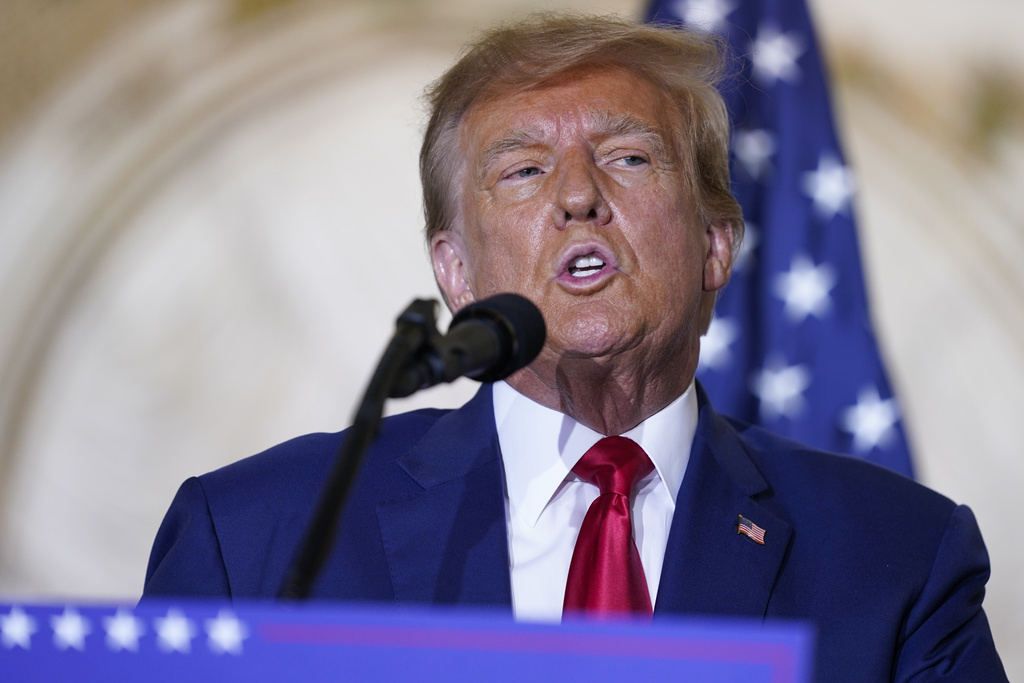The legal team for the former President is arguing the indictment against him for alleged interference with the results of the 2020 election should be overturned because Trump as former President, they say, should be immune from prosecution.
The tone and number of questions for Trump’s attorneys from judges Karen Henderson, a George H.W. Bush appointee, and Biden appointees Michelle Childs and Florence Pan, seemed to provide a window into a ruling that will ultimately go against Trump.
Bill Mitchell, host of Your Voice America, told American Family Radio one legal observation he noticed is the side that is getting the most questions from the bench is the side that is going to lose.
"Trump's people were getting all the questions as opposed to the Justice lawyers were getting all the questions," he pointed out. "So I didn't get the feeling they were leaning towards Trump on that."
Mitchell told AFR show host Jenna Ellis he believes Trump’s lawyers are misinterpreting the Constitution. While it does say that a President must be impeached and convicted by Congress, it does not specify that such must take place before he faces other accountability.
“That's not what it's saying. That's not where it's going with that. So I think that you got that read even from the Bush-appointed judge on this panel that this isn’t going to fly,” Mitchell said.
If the panel does rule against Trump, Trump’s options will be to ask for a review by the complete 15-judge panel of the District of Columbia Circuit or to ask for his case to be heard by the U.S. Supreme Court.
Mitchell’s greater concern is that Trump’s team may be overlooking a more valid strategy – their client’s claims of innocence.
“I’m a little bit concerned that Trump seems to be more arguing in favor of immunity as opposed to arguing his innocence, and if in arguing for immunity he's sort of giving up the whole, ‘I’m innocent’ argument here,” Mitchell said.
If his attorneys press the wrong arguments and lose, Trump’s situation could worsen quickly if the appeals court sends the case back for a jury trial in Washington, Mitchell warned.
“If his First Amendment argument (for free speech) is taken away, and his immunity argument is taken away," Mitchell warned, "and he’s going to be heard on this case before a D.C. jury, and we’ve got this latest videotape that’s just been released of some real violence that took place there on Jan. 6...I don’t know how he’s going to get out of this. I just don’t.”
A legal dispute: Jack Smith's authority
One other approach Trump’s legal team has so far neglected centers around Special Prosecutor Jack Smith and whether he’s legally qualified to go after Trump.
That argument was made in an amicus brief filed on behalf of former Attorney General Ed Meese and others by attorney Gene Schaerr and others at Schaerr-Jaffee LLP.
Amicus briefs are filed in appellate courts by individuals or groups not directly involved in a legal case but who have expertise or insight to offer that may assist the court in making its decision.
The argument “is that Jack Smith simply doesn't have authority to prosecute President Trump or anybody else because he was not properly appointed pursuant to any statute,” Schaerr said on Washington Watch Tuesday.
Schaerr told show host Tony Perkins the problem is that Attorney General Merrick Garland chose Smith as Special Prosecutor as opposed to someone who had been nominated by the President and confirmed by the Senate.
“The general rule under the Constitution under Article two, Section two is that only Congress can create officers of the United States, and they have to do that according to according to statutes. There is no statute that authorizes the appointment of Jack Smith to exercise the kind of power that he's exercising, the power to prosecute a former president with any degree of independence,” Schaerr said.
Attorney General Merrick Garland could have "properly" appointed a special counsel, Schaerr observed, including a sitting U.S. attorney nominated by the president and confirmed by the Senate.
"Instead, he picked Jack Smith, who had not gone through that process," the attorney argued.
Some may scoff at Trump walking on a technical issue, should his case play out that way, but this technicality is no small thing.
“It’s quite significant because, for instance, if I want to challenge something that the federal government might be doing, I have to have legal standing. So it applies to me,” Schaerr said. “The person who would be prosecuting also needs to have the legal foundation to be doing that.”







